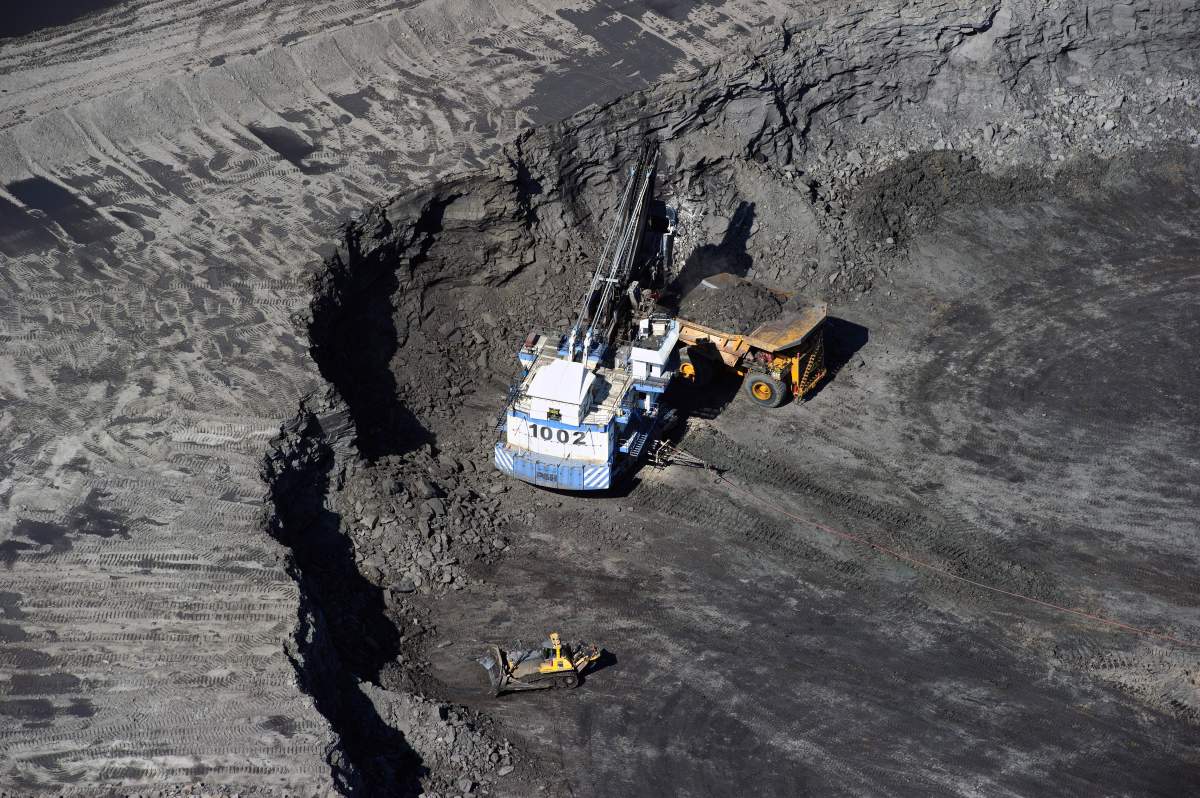When a Calgary oilsands contractor — whom Global News has agreed not to identify in order to protect his employment — took a job last month at Canadian Natural Resources Horizon Oil Sands work site, he knew there was a chance he could get sick.

“A lot of guys were saying, ‘I’m not going up there, they’re swabbing guys and a lot of guys are getting sick.’ That’s the story I heard going up there, but the money was good and I thought, ‘well, I’ll just be careful.'”
The 65-year-old was one of thousands of tradespeople brought in by CNRL to perform maintenance on the site, a period of time known in the industry as a ‘shutdown’ or ‘turnaround.”
Two weeks after arriving at camp, the Calgary worker had contracted COVID-19.
“All I did was eat, sleep, work 13-hour shifts,” he said.
“I know I got it there.”
The worker was moved into an isolation room on site where he says he began experiencing flu-like symptoms, including a fever. He says being sick and alone was frightening.
“I was scared, yeah… the thing is dying alone, nobody there to say bye to or nothing like that. It was scary; I thought I was done.”
The contractor eventually recovered enough to make the seven-hour-long drive back home to Calgary, but according to the company and Alberta Health, two contractors at CNRL Horizon have died.
The outbreak at CNRL Horizon currently sits at 1361 cases, making it the country’s largest workplace outbreak since the pandemic began.
The outbreak was first declared in October but according to a series of employee memos obtained by Global News, cases began to surge in April after the company’s scheduled maintenance period began.

Get breaking National news
Of the maintenance period, the weekly memos note that there was, “…a peak workforce of 5,000 workers above our normal daily average,” and that on April 1 there had been 258 cases of COVID-19 at the site since the fall.
In an April 8 email, 44 new cases were reported. On April 16, there were another 84. On April 23, 193 additional cases were reported, while the April 30 memo reported 268.
Another 219 cases were noted in a memo dated May 6. Alberta Health says there have been at least 268 positive cases linked to the CNRL Horizon site since then.
“Our members are scared,” said Alberta Federation of Labour president Gil McGowan.
“They’ve told me and their leaders in their respective unions, yes, they want to work — but they want to work in conditions that are safe, and as it stands right now, conditions are not safe in most if not all oilsands-related construction projects.”
McGowan is calling on the province to shut down work sites that are experiencing large outbreaks of COVID-19, but Alberta’s United Conservative government has deemed the oilsands worksites and their supporting works camps essential.
A spokesperson with Alberta Health says the province is working with the company to manage the outbreak.
“Alberta Health Services has started to offer onsite immunization clinics at industrial camps and sites in the Regional Municipality of Wood Buffalo. The first site completed was CNRL Horizon,” Tom McMillan said in an email to Global News.
“More than 136,000 rapid tests have been provided to CNRL for its two sites to help detect COVID-19 and protect workers.”
“What we are seeing, unfortunately, is the impact of some of the variants of concern,” said Dr. Deena Hinshaw, Alberta’s chief medical officer of health.
“As in many other places in the province we have seen transmission increase when variants of concern are introduced, we are seeing that impact on these sites, as well.”
“With vaccination, rapid testing and outbreak measures, we anticipate that these outbreaks will be under control in the near future.”
Alberta Health Services says it last inspected CNRL Horizon on March 16, to conduct an assessment prior to turnaround.
“Some of the general items identified included a need for more signage around hand hygiene and more access to hand sanitizer on this site, further controls to encourage physical distancing in the aerodromes and within trailers and a request for extra cleaning supplies to be available in trailers,” said AHS spokesperson Kerry Williamson in an email to Global News.
“Concerns identified during site visits are followed up by AHS Environmental Public Health. There were no follow up visits done in April 2021, but regular consultation with the site continues.”
The turnaround at CNRL Horizon is now complete and workforce levels on site are returning to normal levels.
Last week, Suncor Energy Inc announced it was delaying a planned maintenance shutdown at its Base Plant oil sands mine upgrader because of surging cases of COVID-19, but McGowan says other maintenance projects are moving forward.
“As it stands right now, there are approximately 10,000 construction workers on the various projects right now and living in camps long distances away from any city, including Fort McMurray.”
AHS says there are currently 43 COVID-19 patients at Northern Lights Regional Health Centre in Fort McMurray, including 10 in ICU. The regional hospital has had to expand its intensive care unit from seven patients to accommodate the increase in demand.
Global News reached out to CNRL for comment on this story, but no response was received by the time of publication.








Comments
Want to discuss? Please read our Commenting Policy first.